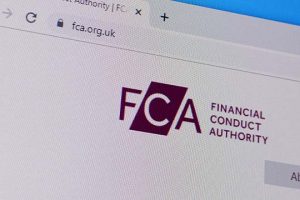12 digital asset firms get extension as FCA registration deadline closes amid outrage

After being extended twice in the past year, the deadline for U.K. digital asset firms to register with the country’s financial regulator has finally closed. Several dozen firms will have to halt operations in the country, with only 12 companies getting an extension to either wind down or get their houses in order.
The Financial Conduct Authority (FCA) first became the U.K.’s anti-money laundering (AML) watchdog in January 2020, and in December that year, it announced a temporary registration program for virtual asset service providers (VASPs). Over 100 firms applied for the program at the time, and they were allowed to continue providing their services as the FCA considered their applications.
Since then, over 60 companies have either seen their applications dismissed by the FCA or withdrawn them after failing to fulfill the watchdog’s requirements. So far, only 33 firms have been fully licensed to operate in the country.
B2C2, a London digital asset trading firm, is one of those that gave up and recently withdrew its application. It said that it would shift all its spot trading activity to its American entity but would continue to offer derivative trading through a local subsidiary.
“We are committed to ensuring this move causes as little disruption as possible and are working closely with our clients to ensure they continue to have a seamless trading experience with us,” a representative for the company commented.
Wirex, a digital currency payments provider, also withdrew its application and announced that it would continue serving its users through its subsidiary licensed in Croatia.
Not all those companies that have had to shift their operations to other European countries have taken it gracefully. Many have accused the FCA of being trigger-happy and turning down applications for the tiniest faults, even those that can be easily amended.
One CEO of a VASP that is shifting its operations elsewhere in Europe, who asked not to be named, told the Financial Times, “We decided some time ago to say ‘screw them’. I have been the biggest fan of the FCA over the years. They were the gold standard of regulation. But no longer.”
Those that have received the coveted license have a different view altogether, praising the FCA’s approach and saying it’s essential to protect the investors.
One of these is Paysafe, a fintech and payments company. “The U.K.’s registration regime will mean that a number of companies will inevitably need to exit the U.K. market because they are unable to meet the necessary standards in terms of risk and compliance,” Chirag Patel, the CEO of its digital wallets division, told CNBC.
But even as Paysafe praises the FCA, it has been the subject of concern for the regulator over the past couple of weeks for its entanglement with Binance, the global exchange that the FCA booted out of the U.K. Paysafe has partnered with the exchange recently, giving Binance a way back into the U.K payments sector, a development that worries the FCA.
Despite the accusations, the FCA believes it’s been performing its duties excellently and blamed the firms whose applications it turned down for not meeting its standards.
“While we have registered 33 firms, we have seen too many financial crime red flags missed by the cryptoasset businesses seeking registration. Worse, we have seen examples where firms do not have the controls necessary to raise red flags in the first place,” an FCA spokesperson told the media.
And while VASPs whose deadline has been extended welcome the move, Her Majesty’s Treasury isn’t as pleased. A select committee for the Exchequer accused the FCA of being too slow in its crackdown on the industry.
“It is disappointing to hear that the FCA hasn’t fully met its own already-extended deadline, which the committee strongly encouraged it to meet. I look forward to receiving a full explanation for the delay,” Mel Stride, the chair of the committee, commented.
Watch: CoinGeek New York presentation, Digital Currency as a Tool for Financial Inclusion
Source: Read Full Article
